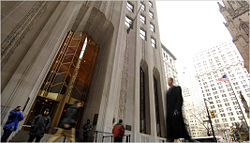Home
From Wikibon
Latest Peer Incite Research:
Latest Peer Incites:
1. How Shopzilla Manages Insane Storage Growth (5:18)
- NEW Research: Pitfalls of Compressing On-line Storage.
WikitipCloud Computing, Myth and RealityIt is no secret that I am a big supporter of the cloud. For those familiar with my blog, I have discussed the advantages the cloud brings to businesses in articles like "5 Ways a Small Business can use the Cloud" , how to manage the disadvantages, in posts like "5 Challenges in the Journey to the Cloud", and generally offered tips on how to actually migrate to the cloud. From my own writing but also from other articles on the Internet, there seem to be some things we all assume about the cloud, forming a kind of mythology of the cloud. These are a few:
These are just six of the things that seem to be widely accepted when it comes to the cloud. In December 2011, I read "The CSC Cloud Usage Index", and it is interesting to see how the reality compares to the myth.
In conclusion, I believe that the myth and the reality are not that far apart, and even some fears seem to be not that well founded. Those who have adopted the cloud find that it generally is exactly what they expected.
|
Featured Case StudyFinancial giant goes greenThe corporate IT group of a very large, worldwide financial organization with 100,000 employees, has initiated an ongoing “greening” process. This is focused largely on reducing energy use both to decrease the corporation's carbon footprint while creating a net savings in operational costs over the lifetime of new, more energy-efficient equipment, including new storage systems. |
|
Featured How-To Note |
Planning a Green Storage InitiativeFluctuating energy prices have heightened electricity and energy consumption as a major issue within the technology community. IT is a significant consumer of energy and IT energy costs have been rising disproportionately because of continued investment in denser IT equipment. Estimates from the EPA and others indicate that IT will account for 3% of energy consumption by 2012. | |||



